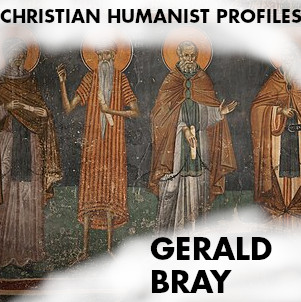Every story of thought and thinking runs into its own kinds of problems. Progressive accounts do well showing how predecessors were not quite as sharp or as moral as we are, but they have a hard time saying what might come to pass in years or generations to come. Conservative narratives have to distinguish between things worthy to conserve and things best left to antiquarians. Revolutionary accounts anticipate radical ruptures but tend to neglect good things that revolutions tend to leave behind. And Christian stories of the history of thought face the struggle of deciding when to say, with Jesus in Matthew, that whoever is not with us is against us; and when to say, with Jesus in Mark, that whoever is not against us is with us. Gerald Bray’s book Athens and Jerusalem: Philosophy, Theology, and the Mind of Christ takes up that work of distinguishing influences of Christian theology from resistance to the same, and Dr. Bray is here to talk to us about that project.

https://shorturl.fm/A2vdZ